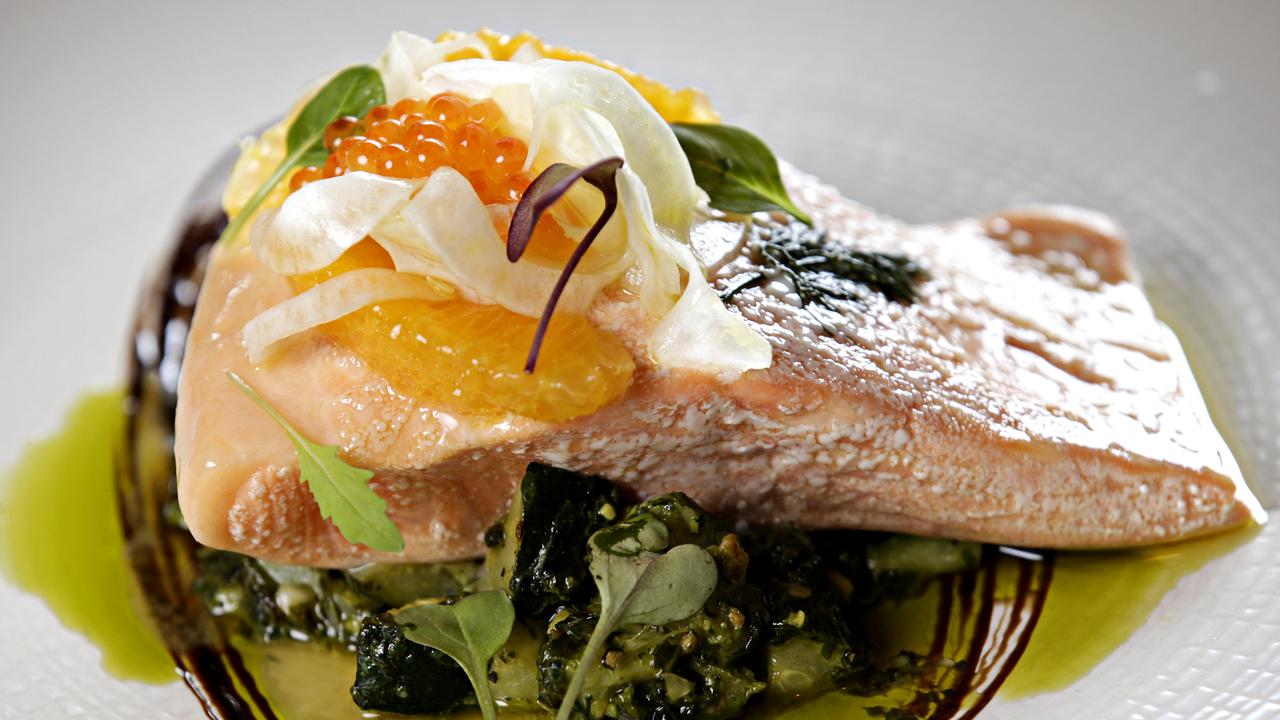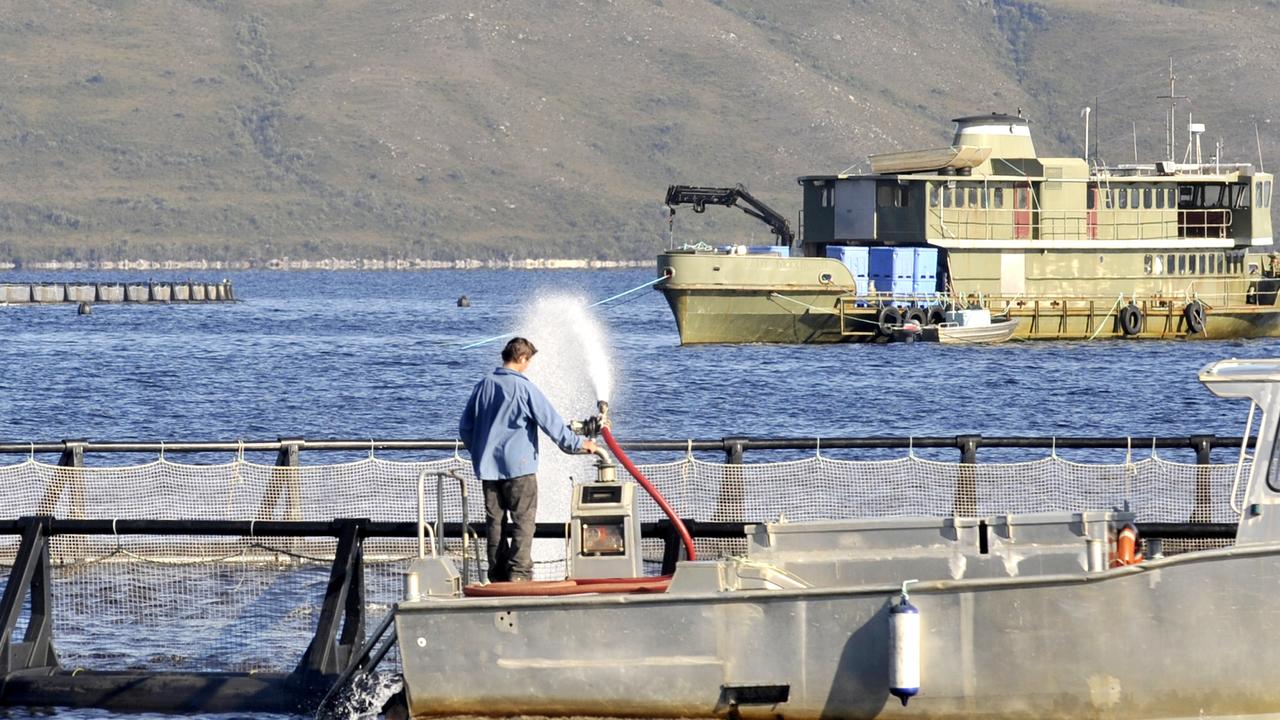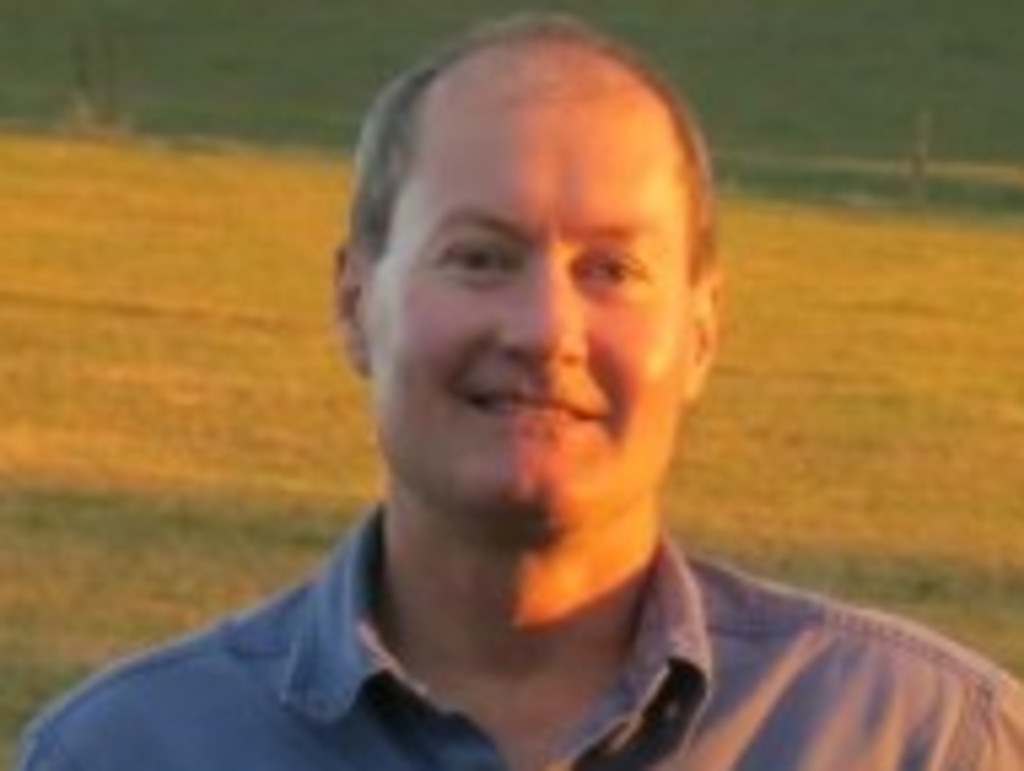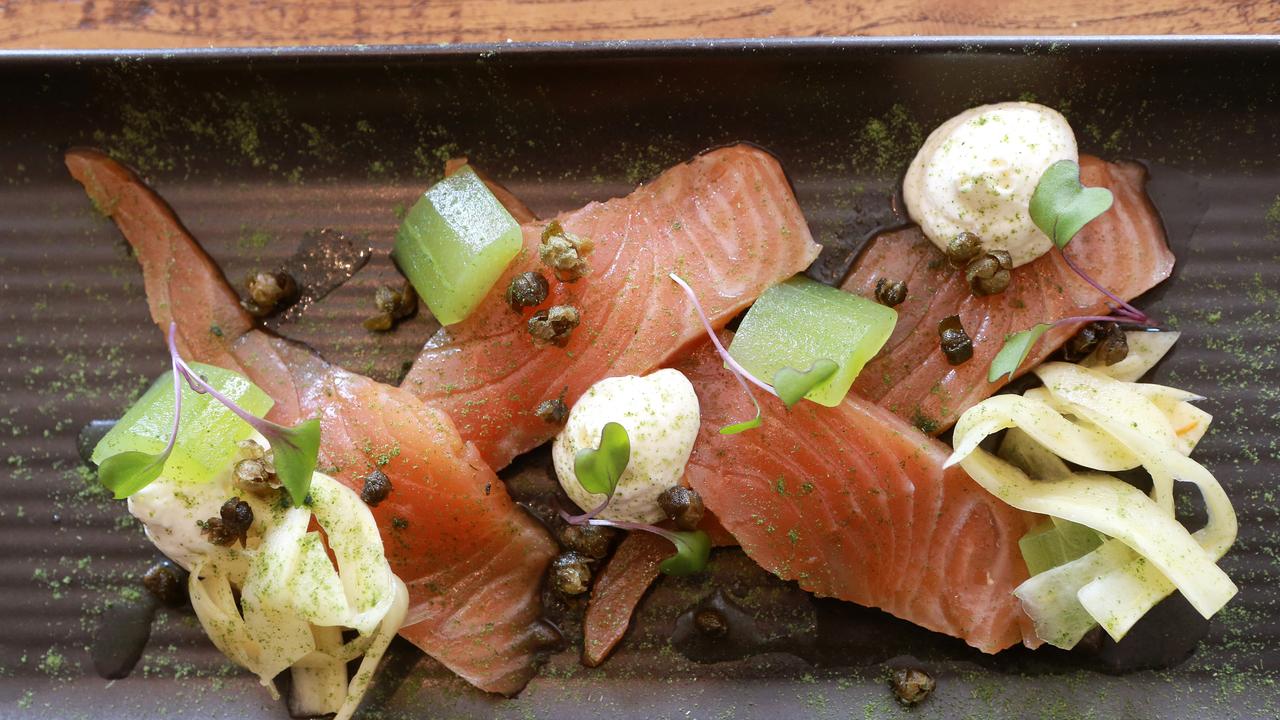Salmon Tasmania chair fronts food security inquiry
The future of one of the country’s most loved dinner staples appears shaky as the government looks into food security across the nation.
There are concerns about the viability of Tasmania’s salmon industry as the threat of climate change and controversy in the sector risk causing issues for production.
The recently elected chair of Salmon Tasmania, Lyle Howard, faced questions about the state’s largest agricultural industry during a federal government inquiry into food security in Australia.
Farmed salmon in Tasmania has come under public scrutiny in recent years, following the publication of the book Toxic by Richard Flanagan, which argued that the industry’s practices were poisoning the state’s drinking water and damaging natural waterways.


Activists have also been calling for change in the industry and for Australians to avoid consuming salmon due to health and environmental issues, with 1.35 million fish dying off Tasmania’s coast in 2018 due to disease and low levels of oxygen.
A Legislative Council committee in May 2022 found the push to grow the industry had caused complications as “efforts to effectively regulate the industry and keep pace with the protection … of public waterways has been a challenge”.
The member for Lyons in northern Tasmania, Brian Mitchell, said he believed the growing level of controversy posed a “risk” to the industry which needed to be “dealt” with.
Mr Howard said he disagreed the industry was under threat from the push to avoid eating salmon.
“What I see is a small number of noisy opponents of industry who are able to get a lot of airtime,” Mr Howard said.

“When you go and speak to people who work in the industry … [they] love where they live, they are dedicated to preserving the environment and they would not be working in an industry if it was causing the problems that the vocal minority claim.”
He added Salmon Tasmania, which represents the sector’s largest producers Tassal and Huon Aquaculture, and the state government should do more to address concerns within the community.
“We have to communicate better … every industry has to communicate because if people aren’t told what’s really going on, then they just believe all the bad news. It’s part of the human condition,” he said.
There were also questions on the viability of the industry when considering the effects of climate change, with Mr Mitchell bluntly addressing the fact salmon “like cold water”.
A spokesperson for the Tasmanian government speaking at the inquiry said the industry was “no different” to others in that it was investigating ways to combat climate change.

“Our salmon industry grand plan is looking into the future for salmon production around [moving production] further offshore,” she said.
“Part of the reason for that is, one about impacts, but also around saying further offshore could potentially be better in terms of salmon.”
Mr Howard also flagged the rising cost of production for Tasmanian salmon, an industry that’s reliant on international and interstate exports.
“Costs of production in Australia are higher than our international competitors by around 30 per cent,” he said.
“Labour costs are higher and add to this the cost of freight and fuel from Tasmania.”
He said that during the Covid-19 pandemic, the price of international airfreight went up from $1.08 per kilogram to $5-7, a cost which “hasn’t fully rebalanced” and continues to effect prices.



